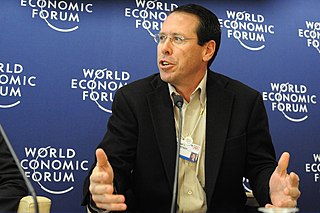A Quote by Sol Campbell
I don't rely on off-shore tax havens, and I don't want to invest in stocks and shares as we have seen how volatile that game has been since the financial crash.
Related Quotes
Let's stop for a second and remember where we were eight years ago [in 2008]. We had the worst financial crisis, the Great Recession, the worst since the 1930s. That was in large part because of tax policies that slashed taxes on the wealthy, failed to invest in the middle class, took their eyes off of Wall Street, and created a perfect storm.
I want to end tax dumping. States that have a common currency should not be engaged in tax competition. We need a minimum tax rate and a European finance minister, who would be responsible for closing the tax loopholes and getting rid of the tax havens inside and outside the EU. It is also clear that we have to reach common standards in our economic and labor policies. We cannot continue to just talk about technical details. We have to inspire enthusiasm in Germany for Europe.
Much of the blame for the situation lies with the states themselves. They haven't been able to pass decent laws. For decades, tax authorities have been taking aim at the phenomenon of tax havens, and the most aggravating thing is that they aren't just in Bermuda or on the Cayman Islands, but right outside our front door.
One measure for promoting both stability and fairness across financial market segments is a small sales tax on all financial transactions - what has come to be known as a Robin Hood Tax. This tax would raise the costs of short-term speculative trading and therefore discourage speculation. At the same time, the tax will not discourage "patient" investors who intend to hold their assets for longer time periods, since, unlike the speculators, they will be trading infrequently.



































